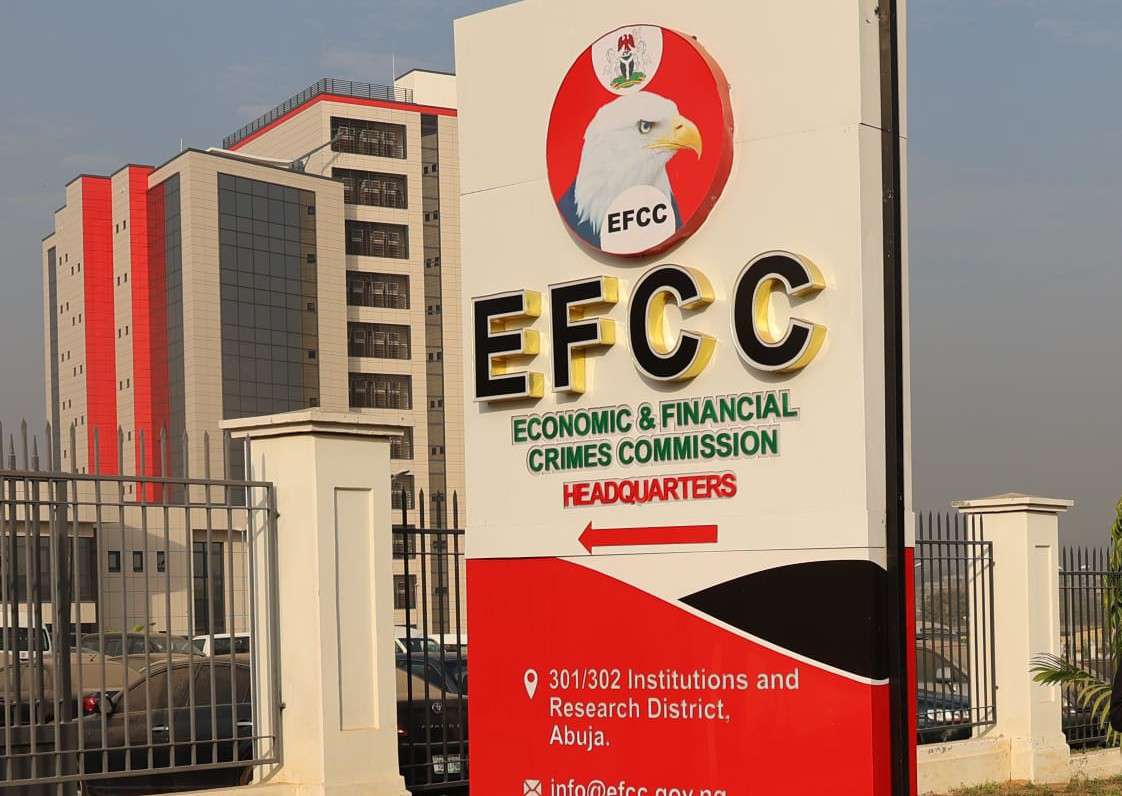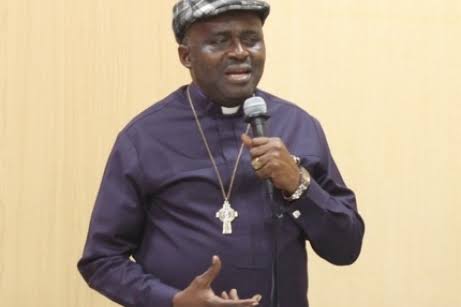Features
Nigeria’s corruption ranking belies President Buhari’s graft war

By ADEBAYO OBAJEMU
Muhammadu Buhari, Nigeria’s President was once the favourite hero of masses of the country. This heroic status largely stemmed from his feat in his 20-month leadership of the country between December 31st 1983 to August 27, 1985 when he was toppled in a military coup led by General Ibrahim Babangida.
Thus Buhari remained in isolation and political wilderness for much of the intervening period until 2015 when he won the presidential election after three previous unsuccessful attempts.
Apart from his promises to put a stop to insurgency, make jobs available, restore the dwindling economy and generally evolve a new Nigeria, one big campaign promise he (Buhari) as the presidential candidate of All Progressives Congress, APC, had continually harped on was to stamp out corruption from the shores of Nigeria.
But there was a general perception that this might seem a tall order to achieve given the popular impression that a number of persons who were with him in and outside his party were also corrupt.
Many Nigerians – high and low – who claimed to know General Buhari were won’t to swear that the lanky former head of state had indisputable integrity in this direction.
Events in the country since Buhari assumed power in 2015 have shown that corruption has grown in leaps and bounds, many in his All Progressives Congress ruling party have been charged for corruption by the anti graft agency, Economic and Financial Crime Commission, EFCC, some have been to prison briefly like Uzor Kalu, former Abia State governor.
In its latest Ranking by Transparency International 2021 Corruption Perception Index (CPI), there is much to worry about. Nigeria has dropped five places in the 2021 Corruption Perceptions Index (CPI) index, according to Transparency International (TI).
Nigeria scored 24 out of 100 points in the 2021 index. Nigeria’s current 154 ranking out of 180 countries in the 2021 Corruption Perceptions Index is a drop of 149 in the 2020 index.
In the Corruption Perceptions Index 2021 Nigeria ranks 154 out of 180 countries and territories, falling back five places from the rank of 149 in 2020. The CPI is TI’s tool for measuring the levels of corruption in the systems of various countries around the world. The maximum points a country can score is 100 points, and the least is zero. Zero signifies the worst performing countries and 100, the best-ranked.
According to the ranking, Nigeria is the second most corrupt country in West Africa after Guinea ranked 150 on the global index.
While the Nigerian government has consistently claimed that it is reducing corruption, the ranking may be an indicator that corruption is getting worse in Nigeria.
It is Nigeria’s second consecutive year of a downward spiral on the TI’s CPI ranking, the country’s score has dropped from 26 in 2019 to 25 in the 2020 assessment, and further to 24 in the latest 2021 record.
The CPI is one of the data that President Muhammadu Buhari and his party the All Progressives Congress (APC) relied on to push its anti-corruption agenda against former government of opposition People’s Democratic Party (PDP) during campaigns of his first election in 2014.
However, the Nigerian government has become one of the fiercest critics of the index since Buhari was elected president over unfavourable rankings to Nigeria.
Nigeria’s information and culture minister Lai Mohammed in 2021 said the index “does not reflect the great strides by the country in its fight against corruption, particularly in the public sector.”
Garba Shehu, a spokesman to Buhari accused Transparency International of releasing a “sensational and baseless rating on Nigeria and the fight against corruption.”
Instead, he said, “the Buhari administration deserves credit for diminishing corruption in the public service and will continue to vigorously support prevention, enforcement, public education and enlightenment activities of anti-corruption agencies.”
While saying the “government ready to learn from mistakes and make corrections”, the presidential spokesman noted that “this report is not an accurate portrayal of the facts on ground.”
But Transparency Internation in the 2021 report said “despite multiple commitments, 131 countries have made no significant progress against corruption in the last decade.”
Transparency International in its report highlighted that “the global average remains unchanged for the tenth year in a row, at just 43 out of a possible 100 points.”
Professor Adeagbo Moritiwon, a political scientist told Business Hallmark that “Buhari is not fighting a genuine anti-corruption war, his EFCC is selective. It is sad! The latest ranking by Transparency International is yet another that this government is a joke.”
Dr. Adamu Muhammad of the department of political science, Uthman Danfodio University Sokoto, seems to agree with Moritiwon’s.
Muhammad told BusinessHallmark that “One thing is clear, this administration’ anti corruption posture is not strong enough to be a deterrent, how many high profile convictions has it achieved? Look at the calibre of people in the party. The Buhari past image that helped him win election is a hoax, we can now see the truth.”
The Transparency International report was revealed on TI’s official Twitter handle, @TranperencITng last Tuesday.
It is Nigeria’s second consecutive year of a downward spiral on the TI’s CPI ranking, the country’s score having dropped from 145 in 2019 to 149 in the 2020 assessment, and further to 154 in the latest 2021 record.
The ranking may be an indicator that corruption in the country has gotten worse over the years. Typical of the current administration’s anathema to criticism both internal and external, Nigerian government has condemned the ranking.
The Buhari administration has always criticised any unfavourable TI’s reports that point to worsening corruption in the country. It claimed last year, in reaction to the 2021 assessment, that TI was unaware of President Buhari’s administration’s achievements in the battle against corruption.
The Minister of Information and Culture, Lai Mohammed, had stated that the (TI-CPI) does not reflect “the great strides by the country in its fight against corruption.
He said: “For instance, following the release of the 2019 TI-Corruption Perception Index, the government initiated reforms to improve on Nigeria’s Ease of Doing Business indices. This is because we found that up to 40 per cent of the country’s corruption perception survey indices relate to business processes and general public service delivery processes.
“Government’s swift action has led to major reforms in the processes at our ports and business process points.”
The Civil Society Legislative Advocacy Centre (CISLAC), the national chapter of Transparency International (TI), said the CPI result does not include the assessment of Nigeria’s anti-graft agencies which are making commendable efforts in reducing corruption in Nigeria.
This, the group said, was despite the political interference they face. Rather, the CPI goes beyond the anti-graft agencies. Auwal Rafsanjani, TI’s country representative, said this in a statement issued on Tuesday, further blaming the fall on the government.
The CPI result, he said, comes at a time when the country is grappling with rising nationwide insecurity, high unemployment, and damning revelations about public finance management. The score, according to the organisation, does not reflect specific instances of corruption in the country, but rather the perception of corruption.
CISLAC also said the failure of the anti-graft agencies to investigate high-profile corruption cases and prevent Illicit Financial Flows (IFFs) by anti-corruption authorities was one of the numerous deficiencies noted by the organization as reasons for the group’s drop in the CPI-TI ranking.
“While we commend the arrest of cyber criminals and call on the anti-graft agencies to do more, there is a need to investigate high profile political cases including those of individuals who have switched political affiliations.
“A case in point is the Pandora Papers revelations which is one of the biggest ever corruption leaks led by the International Consortium of Investigative Journalists (ICIJ) and over 600 journalists from 117 countries, including Journalists from Nigeria’s Premium Times.
“A close look at the Pandora Papers published in 2021 reveals that Nigeria tops the African continent when looking at the number of those exposed. Following the pattern of two previous leaks (i.e., the Paradise Papers and Panama Papers, which were released in 2016 and 2017, respectively), the Pandora Papers exposes systems and secrecy jurisdictions that enable and abet crime, corruption, and illicit dealings by politicians, billionaires, influential individuals, and their enablers globally.
“Since its release on October 3, 2021, Nigerians are yet to see any action or get answers from anti-graft agencies whose work has been made easier by the diligent reporters from Premium Times which highlighted stolen or suspiciously acquired assets to be investigated. With the elections fast approaching, and the response.”
In spite of all this, a coalition of anti-corruption organisations has applauded the Nigerian government for its commitment to enacting anti-corruption legislation.
The Whistle-blowing Advocacy Coalition praised the government for supporting three anti-corruption initiatives currently before the National Assembly – the Proceeds of Crime Bill, the Whistleblower Bill, and the Witness Protection Bill.
Recall that president Buhari had written to the National Assembly to seek timely passage of the three bills.
The letter dated January 14, was read by the President of the Senate, Ahmad Lawan; and Speaker of the House of Representatives, Femi Gbajabiamila, at the plenary on Wednesday in their respective chambers.
The three proposals, according to the group, have been long overdue for consideration and passage since they are vital to a successful fight against corruption in Nigeria.
This was contained in a statement jointly signed on behalf of the Whistleblowing Advocacy Coalition by the African Centre for Media and Information Literacy (AFRICMIL), Chido Onumah, Coordinator, Executive Director, Progressive Impact Organisation for Community Development (PRIMORG), and Okhiria Agbonsuremi.
“We see the three bills as extremely important in checking pervasive corruption in the country; however, we are particularly delighted with the president’s reference to the whistleblower bill given the frontline role of whistleblowing as an instrument for combating corruption and other forms of wrongdoing, as well as achieving transparent, accountable and democratic good governance,” the statement said.
The coalition stressed the importance of whistleblowing in our society, stating that the country’s laws encouraged residents to report crimes, but regretted that there were no laws protecting citizens who were subjected to various forms of punishment for reporting illegalities.
According to the coalition, “With the announcement of the whistleblowing policy in 2016, it was taken for granted that citizens who demonstrate the rare courage to blow the whistle by submitting productive reports of corrupt practices to appropriate quarters would enjoy full protection, but the reverse has since been the case.
“In the absence of a robust legal framework that ensures effective protection for citizens who respond to the call to report a crime, the regime of impunity manifested in routine arbitrary punishment of workers has taken firm root in the public sector.
“All kinds of reprisals ranging from threats and intimidation, suspension, withholding of salary, denial of promotion, outright dismissal and much more are continually being inflicted on whistleblowers in the public service.
“Regrettably, the masterminds and enforcers of the several victimization have intensified efforts in all kinds of despicable schemes to punish whistleblowers by exploiting the gap created by the absence of a functional whistleblowing law that guarantees protection and sanctions perpetrators of victimization.”








